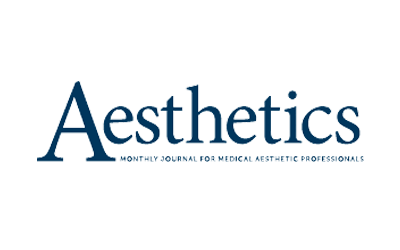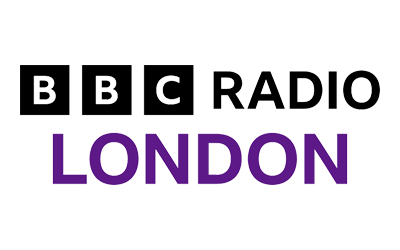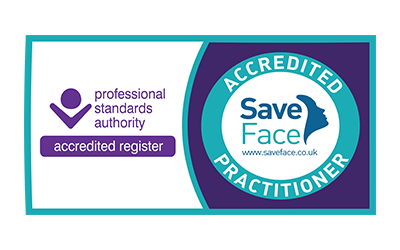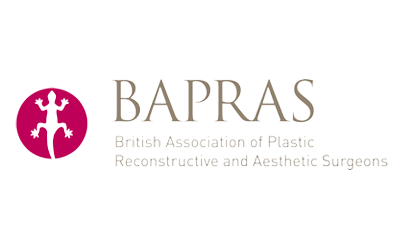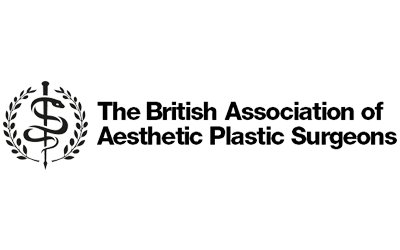Read through our specially prepared FAQs on Plastic Surgery. Whatever your concern, we have attempted to answer here. If you still have any question at all, call or make an enquiry from our contact page.
Plastic Surgery is the speciality, which is dedicated to improving or restoring the appearance and/or function of numerous areas of the body. The word “Plastic” is derived from the Greek word “Plastikos” meaning to mould or give shape. Plastic surgery can broadly be separated into two categories: Reconstructive surgery to restore the form and function that has been lost through accident, disease or birth defect, and Cosmetic Surgery. It is important to understand however that many procedures combine elements of both and that despite differing slightly in focus, the same basic surgical techniques apply. All of the techniques used in both reconstructive and plastic surgery are honed and developed through many years of intense training in recognised Plastic Surgery units. Plastic Surgery is performed to improve a persons’ features in order to either reverse some of the effects of ageing or to bring the persons features i.e. nose or ears within a broad range of average or normal criteria. Today no one can dispute the fact that successful plastic surgery, when performed on an individual with good indications for improvement, can have very definite benefits on ones psychological well being. These can include boosting self esteem and confidence. It is however crucial that emotional stability is established before any plastic surgery is undertaken. Moreover it is very important to understand that apart from improving some aspect of your appearance, plastic surgery is not going to resolve your major life problems, save a bad marriage or turn you into a model or movie star! It is imperative therefore that you examine your reasons carefully, and make sure that your expectations are realistic. Never have surgery to please someone else. Surgery performed for this reason rarely has any benefits. If you have surgery, have it because you want it.
Today, more and more people are discovering the benefits of plastic surgery. This has arisen mainly from an increasing public awareness through media exposure and education. Furthermore increased interest is reflected in the over 15 million websites worldwide dedicated to plastic surgery which also serve to educate and inform people about the virtues of plastic surgery. Men and women of all ages and all walks of life want to make a change for the better because they believe that they are worth it. Plastic surgery using the latest techniques can now provide safer more effective and longer lasting results than ever before. And the fact that total surgical and non-surgical procedures done around the world every year outnumbers the sum total of all other surgeries put together is further testament of the convincing arguments for plastic surgery. Of course, different people have different reasons for choosing plastic surgery. Sometimes it is the businessman, who relies on eye contact, who decides to have an eyelid lift to rectify baggy eyelids. Other times it’s the young active female who feels very self conscious in a bathing suit and requests liposuction to treat her diet and exercise resistant hip rolls. Or maybe it’s the retired mature lady who just feels that she looks a little tired and ragged in the face and who seeks a facelift to freshen her appearance.
Today’s increasing affordability of plastic surgery, coupled with faster and easier recovery, are just a few of the reasons which help explain the surge in popularity of plastic surgery. In addition, as modern medicine has provided us with a longer life span and a better quality of life, today’s fifty, sixty and seventy-year-olds feel much younger compared to their parents or grandparents. Therefore it is reasonable for them to seek safe surgical procedures that will give an outward appearance to match this youthful feeling. Many people’s philosophy of enjoying life to its fullest through better nutrition, exercise, and a maintained youthful outlook, makes it only natural to continue to look as young as one feels.
Whatever area of your body you decide to subject to plastic surgery, remember, the ultimate goal or motivation should be the same: to improve or boost your self- confidence, self -esteem or self body image. Simply put, successful plastic surgery should make you feel good about yourself. This is why you should always examine your motives before undergoing surgery and make sure your expectations are realistic. Never have surgery to please someone else. If you have surgery, have it because you want it.
Frankly speaking this argument against plastic surgery is just ridiculous. Just because something occurs naturally in our body either through birth or through time, doesn’t mean we have to accept it, like it or not. Parents spend thousands of pounds on correcting their children’s crooked teeth to avoid leaving them with the stigma of “buck teeth”. Nobody would be heard to say leave them alone because they’re “natural”. Similarly how often do you hear a woman or man boasting that the multiple prominent varicose veins on their leg gives them “character”? Or that an unsightly wart situated on the face is part of their personality? Of course not. Yet not many comments are made when people seek treatment for these conditions. Plastic surgery is not significantly different to any of these. And what of the vanity issue? Well, the definition of vanity according to the Oxford English Dictionary is: that which is vain, futile, or worthless: that which is of no value or profit. Boosting one’s self esteem, self -confidence and self body image as a result of plastic surgery cannot be deemed as that which is worthless or of no profit. In truth however, most people would agree that what is inside is more important than what is outside. But increasingly we’re learning that the outside is important too, mainly because it can have a direct impact on how you feel about yourself. It’s simple, when there’s something you don’t like about the way you look, it can make you feel self conscious, unhappy and unconfident. It’s not about vain, self indulgent, narcissistic people. It’s about ordinary people dealing with ordinary issues.
Good plastic surgery, like any surgery, must be planned, and this begins with your consultation. The only person qualified to discuss this with you is the surgeon performing the surgery. In this respect, choice of surgeon is of paramount significance. The single most important factor in the success of any plastic surgery is the Plastic surgeon you select. Unfortunately today, all kinds of doctors perform plastic surgery. Once a doctor has earned a general medical degree, they may practice any speciality they wish regardless of whether they have had any formal advanced training. Despite many of these practitioners’ claims that they have operated on numerous patients and therefore now have a “wealth of experience” the question begs how did they acquire this experience in the first place without any formal training or examinations? Undoubtedly the answer for most, is probably through trial and error from their first few unfortunate unsuspecting patients. People need to understand that good fundamental surgical principles which are gained through years of surgical training cannot just be substituted with some ad hoc learnt experience. Remember therefore, experience without formal training is not much use to you.
An important question remains; How do you find a Plastic Surgeon? As a start consult your GP. If you have confidence in your GP, then you will have confidence in the surgeon he or she recommends. Personal recommendation through friends or relatives is also quite helpful. Finally the yellow pages lists surgeons in your area, but their credentials may be difficult to decipher without explanation. This can make things confusing, particularly with so many surgical Societies, Associations, and Academies abound. You should understand however that in some of these organisations you do not necessarily need to be a Qualified Plastic Surgeon to be a member. The only register which contains all specialist Plastic Surgeons in the U.K. is the United Kingdom’s General Medical Council’s (GMC- www.gmc-uk.org) specialist register(0845 357 3456). If a doctor is to be a fully qualified specialist Plastic Surgeon then he or she must be registered on this list. So make sure you check your surgeon is on this list!
After you have chosen two or three potential surgeons, then book your consultations. It is probably a good idea to try and do your homework regarding your chosen procedure beforehand. Many surgeons send out information booklets about their practice and procedures prior to a consultation. Read up as much as you can. A word of caution also needs to be made with respect to advertising clinics. In many so- called plastic surgery clinics it is common practice to see a “counsellor” prior to seeing any surgeon. In this respect remember to never allow your self to be swayed or “consulted” by “counsellors” lay or nursing irrespective of their experience. Although it is possible that some may have had practical experience in plastic surgery, you must remember that apart from assisting with simple explanations and descriptions, you should never place yourself in a position where they recommend surgery. Any reputable advisor or counsellor should make this quite clear right from the start. Always remember that the final decision in planning your surgery must always rest with the surgeon who will perform your surgery!
It is important to realise that the preoperative consultation is an important integral part of any treatment carried out. It cannot be omitted. It is also an opportunity for you to assess your surgeon. In attending your consultation you should feel free to bring along a relative or friend whose judgement you trust, if you feel their presence would support you. A surgeon should always complete a full medical history and examination. Once this is completed then details of the procedure(s) should be explained to you along with any associated risks or possible complications. Beware of the surgeon who pressures you into having surgery, glosses over potential pitfalls, the recovery period and promises or guarantees results. Remember certainty or guarantees are big words in medicine and should never be thrown about lightly.
Never be afraid to ask surgeon about his training and experience. Find out how much experience your surgeon has had with your procedure(s). The more the better. You may find that some surgeons find this line of questioning insulting or off hand. However never let yourself be fobbed off by this type of reaction. Remember this is about you and your body and therefore you need to know as much as possible about anyone who may be in a position to operate on you! Ask about hospital affiliations and privileges. Good surgeons usually have privileges at good hospitals. During the consultation you should feel confident that your surgeon’s answers are accurate and designed with your best interest at heart, even if it means that the recommendation is not in favour of surgery. You should believe that your surgeon would rather turn your business away rather than risk your health and well being on a procedure. Always ask to see photographic evidence of a surgeon’s work. Photos of before and after results allow you to get a feel for the level of work that your surgeon is striving to achieve. However always try to exercise some degree of caution when offered such photographs. You should consider a number of things, such as whether or not these are the property of the person showing them to you. Admittedly this may be difficult to determine. Many times the same photographs keep turning up with different surgeons claiming to have performed the surgery. Additionally it is important to remember that the use of photographs portraying only favourable results can be misleading. These are in no way a guarantee that you will have a similar result. Remember every individual is different and therefore you may fare better or worse, but never exactly the same. At best, use these only as rough guidelines as to what result you might achieve.
Having seen a number of doctors, you will then start to get a feeling about who is right for you. You should never forget that personal chemistry is also very important in choosing your surgeon. Remember your surgery will effectively be a journey, from the start of the operation to the end of recovery. You therefore need to feel reassured with any surgeon throughout the course of your journey. Choose one you feel comfortable with. Someone who is easy to talk to. Someone who’s friendly yet professional. Someone who listens closely to what you want and cares about what you need. The majority of Plastic Surgeons do. And if you do your homework, you should have no problem finding an experienced fully qualified and accredited surgeon who’s right for you.
The first step is usually when a patient makes a phone call to our rooms and inquires about a specific procedure. We will then spend a fair amount of time on the phone with you(that’s why our phone line is often busy!), asking you about your situation and trying to answer as many of your questions as possible. As some people don’t like talking in depth about their situation over the phone, or to anyone but the surgeon, you can therefore divulge as much information as you like, and we will try and be as helpful as we can. We will try to give you some costs and information about the procedures you’re interested in, but of course these can only be approximate without the benefit of a consultation. We will then suggest sending you some written material, which will give you a chance to read the details in the privacy of your own home, or alternatively you can always download the appropriate information from this website. Although Mr. Karidis literature and information is very comprehensive, this should help you to be better prepared for the consultation and perhaps assist you in developing suitable questions to ask. The next step is to call us again and arrange an appointment in our consulting rooms. If you would like to request an information booklet, or to make an appointment, then please call 0207 432 8727 and speak to one of our staff, who will be pleased to help you.
Strictly speaking no. Nor does he have to know about the surgery that you are contemplating, providing this is your wish. However as your GP is your primary care physician we feel it is important that he or she is aware of your desires, so that if necessary, he can provide us with any additional information which may be helpful in your surgery.
Everybody has seen bad plastic surgery. You can spot it immediately. Instead of enhancing someone’s looks, the results almost certainly detract. Nobody wants to look like they’ve had plastic surgery. All surgery carried out by Mr. Karidis is performed to bring a patient within a broad range of average or normal criteria. Mr. Karidis avoids the overcorrected or “designer” look. He takes prides in achieving natural well balanced results and not ones that leave a patient looking contrived or artificial. However, it is still very important that during your consultation, your requirements are always made clear to him.
During a local anaesthetic procedure, the anaesthetic that is administered ensures that you’re comfortable and feel no pain, although you may detect a light pressure sensation at the site of surgery. If sedation is administered as well(“twilight anaesthesia”) then you will be sleeping throughout most of the procedure and not remember anything. In fact with this type of anaesthesia most patients wake up and the first thing they say is “Is it over already? I thought it hadn’t begun yet!”. Obviously if a general anaesthetic is needed then you will be completely asleep with the anaesthetist monitoring you and therefore you will not feel anything. After surgery, any pain you may experience can usually be controlled satisfactorily through medication and will gradually subside within a matter of days.
Complications can arise with any surgery despite the best attempts by both doctor and patient to minimise these. It would therefore be folly to try and give any “guarantees”. However if something were to go wrong, Mr. Karidis would provide his surgical service to try and correct this, at no extra expense to the patient. Similarly, if after all the factors of healing and settling have taken place, the result is not that which was hoped for by both patient and surgeon alike, and providing there is room for surgical manoeuvre to improve the result, Mr. Karidis will again be happy to provide his surgical service for free.
Obviously this would not apply if post-operative instructions or mandatory postoperative examinations are ignored or if the patient sustains personal injury over which we had no control.
However you must bear in mind that even in the event that Mr. Karidis provides his service for free, there still may be additional expenses involving the hospital and where necessary anaesthetist costs.
A pre-operative (non-refundable) consultation fee of £250 is charged (normally paid at time of booking) but redeemable against the cost of your procedure. Typical fees for surgery vary based on patient complexity. All follow up consultations after surgery however are at no charge. Our practice co-ordinator will be happy to discuss our fees for various procedures. However these will only be a rough estimate. Naturally, until we have had a consultation with you we cannot provide an exact quote for the procedures you desire. A deposit will be required to secure any booking. Any remaining plastic surgery fees are due and payable prior to surgery. We would be happy to provide you with a detailed payment schedule and our cancellation policy on request. Unfortunately, private health insurance very rarely covers the costs of procedures.
Due to the large number of high street and internet banks offering very competitive rates and fees on financing, as a practice we have taken the decision not to offer any formal financing ourselves. This is because we feel we would not be able to give the best possible deal to our patients as we were unlikely to be as competitive or flexible as some of the most up to date deals being offered at any given time in the banking market sector. However we do accept most major credit cards.

